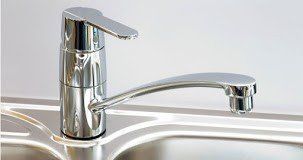
Residential Plumbing Installation
There are three different kinds of plumbing systems. All of which would require a skilled plumber for each category. Plumbing is divided into three groups, which are commercial, service and repair, and residential plumbing. A plumber can be trained in all different types of plumbing jobs, but it is more likely that one is considered to be an expert in a particular category. Although you can get the services of a plumber for any plumbing jobs you might encounter, nothing compares to the quality of work that an expert plumber can offer.
Hiring A Residential Plumbers
If you are looking for a plumber whom you can call to get your home plumbing systems fixed or installed, then you will need to get a plumber who has experience and expertise in residential plumbing. These plumbers particularly focus on residential plumbing. This type of area is considered to be different because there are different plumbing plans for each home. There are also some cases wherein residences do not follow a certain standard for a plumbing plan. Of course, this shall be considered to be a special case that a plumber would be able to handle. Residential plumbing often consists of day-to-day home plumbing repairs and renovations, as well as installation.
One might say that a residential plumbing system is the easiest to work with if one would compare it alongside commercial and repairing any type of plumbing. But it is still a case to case basis since the level of skill required for each job will depend on what the situation presents. There are some cases wherein a plumber might encounter a very big plumbing problem in a small home. Size does not matter for these types of cases. Although it could take residential plumbers less time to work on homes with smaller areas, the duration of the project will depend on its complexity.
What Can A Residential Plumber Do For You?
Again, it should be emphasized that for your home’s plumbing systems’ repair needs, you should work with a plumber who has lots of experience in the field of residential plumbing. These experts can help you out with the following:
- Installation of plumbing systems
- Ensure that the sinks and toilets work
- Installation of plumbing mechanisms to ensure the smooth flow of operations
- Check on your plumbing systems at least once a year
If you have just newly acquired your home, you should see to it that only a licensed plumbing company, along with their technician experts, be permitted to install your plumbing systems. Although it might seem like it will be an easy job for any contractor to do so, there are several tests that only a licensed plumber can do. Aside from making sure that the residential plumbing systems installed in your home are all working fine, they would also check for possible sources of leaks.
Important Parts Of A Residential Plumbing System
If you request to see a plumbing blueprint to be drafted by a professional, it is completely understandable that you do not understand every part of it. That is how complex your home’s plumbing systems can be. Although it might look like it is a simple connection between pipelines, water sources, and outlets, it requires a lot of technical knowledge and skillset.
Residential Plumbing Plan
You cannot have a system set in place without a plan. It would be hard for the residential plumbers to implement it. Besides, the pipelines would have to be connected to each other in such a way that it will not be such an eyesore or distraction to the whole set-up of your home.
Basically, you really cannot expect that there will be a good plumbing system out of an unplanned one. Aside from the fact that several states require certain types of infrastructure, may it be residential or commercial, to submit a plumbing plan along with other technical plans, it cannot be denied that having a clear plan set up before the whole system shall be put into place will really help in clearing out potential risks and problems that might be encountered along the way.
Water Supply System
One of the most important aspects of a residential plumbing system is its water supply. The water supply is the heart of the whole system. It could either be supplied directly or indirectly.
For a direct water supply system, all the water outlets in your home will receive water directly from the main source, because of this, it is possible to get water from all the faucets. You can consider having this kind of system where the water source delivers water with high water pressure. If for some reason, the pressure from your water sources is low, you have no choice but to settle from an indirect water supply system instead. Through this scheme, water is conveyed to the storage water tanks before it is delivered to the faucets or outlets. Once the storage water tanks run out of the water, then you would have to wait a certain amount of time before you will be able to have access to free-flowing water again.
Fixtures And Appliances
Various sanitary fixtures and appliances should be included in the plan. These are the devices that will help you control the amount of water you will be getting and be placed where it shall be delivered. Examples of fixtures are sinks, showers, laundry tubs, and bathtubs, while examples of appliances are water heaters, dishwashers, washing machines, and other water softeners.
Always Rely On A Good Plumbing Company For Residential Plumbing Installation
There are lots of plumbing companies in Denver, CO. As the customer, you should be particular in selecting a residential plumbing company that would be the best fit to handle your residential plumbing installations and repairs in your home. Make sure that you ask them how they are going to handle the important components of a good plumbing system and countercheck their experience with their licenses if it is applicable.




